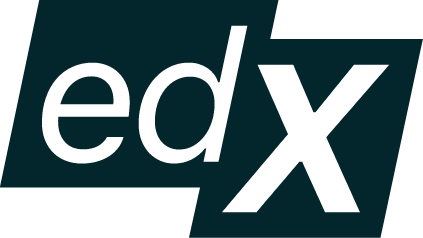Career Pathways
Coding
Advancements in and adoption of technology have allowed for the coding industry to expand and move with the times. As a coding professional, you will join a cutting edge field that is constantly evolving, thus placing you on a path of lifelong learning and allowing you to gain access to a range of career opportunities.

Innovative workplace
The tech world is constantly evolving. This is a field for life-long learners.
Growing industry
Projected growth for web developers and digital designers is 23% from 2021 to 2031.
Cross industry career
Professionals with coding skill sets are needed in all industries from finance to retail.

Nishtha Arora, Front-end Developer
Listen as Front-end Developer, Nishtha Arora, shares her experiences in the industry and how she got there:
I come from a consulting background where I’ve worked in a non technical environment. I was always curious about how the technicality of things work, how exactly the background of things happen, how software’s built and things like that. So, I was at a point where I was getting a chance to do a career change. And, so, I decided I’ll go into a technical field and learn about how things are built. And that’s where I did my boot camp from U.T. Austin and learned web development there. And my first job was working at Match.com for building their website in technologies.
Discover your career opportunities
Acquiring basic coding skills opens up a wide range of career opportunities around the world.
| Entry level | Mid level | Senior level | Entrepreneurial |
|
| App Developer | ||||
| Back-end Developer | ||||
| Chief Technology Officer | ||||
| Coding Instructor | ||||
| Digital consultant | ||||
| E-commerce Developer | ||||
| Front-end Developer | ||||
| Full stack Developer | ||||
| Mobile Developer | ||||
| Performance Analyst | ||||
| Principal Solutions Architect | ||||
| Product Manager | ||||
| QA Tester | ||||
| Senior Developer | ||||
| UI Designer | ||||
| Web Developer |
You may be wondering, what is the difference between a front-end developer, a back-end developer, and a full stack developer? Well, we have your answer!
Front-end developer — Programs the front-end of the web product, otherwise known as the portion that users see and interact with.
Back-end developer — Programs the back-end of the web product, otherwise known as the portion that supports the front-end by providing dynamic functionality and data management.
Full stack developer — Works on both the front-end and back-end of a web product.
Now that you understand these fundamentals, you are equipped to explore other job titles and career paths in the coding industry.
Learn about topics in coding
Register for a course on edX to learn about a variety of topics within the coding industry.
How can I acquire coding skills and turn them into a career?
The responsibilities of coding professionals can vary, but they all revolve around creating products that meet the needs of users and stakeholders. Here are three common responsibilities found in the job descriptions of coding professionals:
Research is key when it comes to any career, and a career in business is certainly no exception. Take advantage of all the information that’s out there, whether it’s through surfing the internet for job titles, listening to industry-specific podcasts, or getting connected to professionals in the areas or positions that interest you.
One key part of the research phase is networking. This simple step is often overlooked and undervalued, but can have a significant impact on your career trajectory. If you want to get clear on your career goals and aspirations, you must take time to talk with professionals about what the work actually looks like.
By reaching out to professionals in your targeted fields, positions, and companies, you open a door of opportunity in your own career. It is invaluable to connect with coding professionals who could vouch for you and gain hard-to-find intel about the industry or organizations of interest.
Check out our Networking guide and Networking outreach samples for help getting started.
To supplement your understanding of what others are doing professionally, make sure to get clear on your own goals and aspirations. Ask yourself if the coding industry is what interests you, or if it’s just coding functions within another industry. The possibilities are endless.
Unless they are targeting a very specific role or project, the majority of aspiring coding professionals start with the most popular coding skills and technologies. It is a strategy worth considering because it increases the pool of job postings that you qualify for.
Use the list below to determine which popular skills match your interests.
Front-end technologies — JavaScript, HTML, CSS, React.js, Angular
Back-end technologies — Python, JavaScript, Node.js, Django, Go, Rust
Full stack technologies — MERN Stack, MEAN Stack, MEVN Stack, LAMP Stack
Data technologies — SQL, NoSQL, MySQL, PostgreSQL, MongoDB
There are a variety of mediums through which you can learn coding skills. Consider which route best fits your needs and learning-style. Here are a few options to consider:
Self-education — If you are looking to learn asynchronously, informally, or casually, self-education is a great place to start. There are many approaches to this style of learning that support various career goals, budgets, learning styles, and time commitments. Here are some ways to self-educate in coding:
- Informal opportunities: Gain a greater understanding of the industry by reading. Explore books, articles, and even research papers to expand your coding knowledge and learn what’s happened or is happening in the field. Not a reader? There are plenty of videos, podcasts, and other forms of multimedia that can teach you a thing or two about careers or work related to coding.
- Online courses: If you prefer a more structured or socialized learning experience, online courses might be well-suited. edX.org offers several instructor-led and self-paced coding courses that may be of interest.
- Professional certifications: When you want a less casual learning experience, but don’t have needs that warrant a boot camp or degree, professional certifications may be the best fit for you. Professional certifications are a great addition to your resume and prove your technical skills for roles in coding. edX.org offers many certificate programs within the field of computer science that may interest you.
Boot camps — These innovative programs are designed by experienced curriculum teams to help you achieve your career goals in a fraction of the time it takes to complete a traditional degree. With many boot camps lasting just 3–12 months, you’ll be amazed at how quickly you can gain the knowledge and expertise you need to launch your dream career. Explore popular Coding boot camps on edX.org.
Computer science degree — Pursuing a degree in computer science means diving deep into the fascinating world of web and computer technologies! It’s an excellent choice if you want to gain a comprehensive understanding of the rich history, intricate theories, mathematical concepts, and cutting-edge innovations that have contributed to shaping the technologies we rely on today.
The technical hiring process is different from those of non-technical fields in two ways:
First, many employers require a portfolio of projects, such as course projects, personal projects, and professional projects. You’ll want to build a competitive online portfolio that highlights your skills and unique value.
Second, many technical hiring processes involve a technical screening. This is a stage in the interview process where the employer assesses a candidate’s technical skills. They might sound intimidating at first, but remember that the employer wants you to succeed. They are hoping to find a great candidate and that candidate could be you.
Once you get your foot in the door of the industry, make sure to celebrate your success. The career journey is full of ups-and-downs and we believe that every victory deserves acknowledgement.
With that said, your journey doesn’t end here — it’s only just beginning. Give yourself grace and understand that careers are not linear. Here are some of the ways that you could continue growing within the coding industry:
Continued learning — Always make sure to reference our course catalog on edX.org for continued learning opportunities. Now that you’ve secured a career in coding, it never hurts to brush up on your skills, expand your knowledge within the industry, or learn about other subject matters that could apply to your work, interests, or something in between.
Promotions — Career advancement in coding looks a little different than other industries. Coding professionals advance in their careers via two pathways: a technical track and a management track.
Technical track: Advance by deepening your knowledge and technical skills. Examples: Senior Developer, Principal Solutions Architect, Lead Software Engineer, Principal Software Engineer
Management track: Advance by assuming people and project management responsibilities. Examples: Chief Technology Officer, Senior Engineer Manager, Director of Delivery Management, Technical Lead
Pivots — Make sure to regularly check in with yourself and your satisfaction with daily tasks. If you find yourself disinterested in your current role, take stock of the things you like and dislike about it, keep your eyes out for company-sponsored growth opportunities, and pursue career pivots that optimize your background, skill set, and interests.
What are my next steps?
Start learning now
If the prospect of developing a coding skill set aligns with your vision, there’s no time like the present to begin acquiring knowledge. For those already embarked on this journey, there’s continual space for growth and improvement.
Watch a session
Watch a relevant session on our Events Page to learn more about the industry and other professional’s experiences within it.
Ace the data science interview with Nick Singh
Want to ace your upcoming data science or analytics job interview? Learn from Nick Singh, author of the best-selling book “Ace the Data Science Interview” and founder of SQL interview platform DataLemur. Get tips on how to solve SQL, statistics, ML, and case study interview questions asked by FAANG and Wall Street. He’ll also share…

Taking ownership of your coding career with software engineers
Gain new perspectives from industry experts in the world of coding. Join this engaging panel discussion with two coding boot camp graduates as they share how they navigated from a structured course to real-world opportunities and took ownership of their careers. As a current or recent student, do you like hearing from alum who were…

Alternative career paths for your coding skills
You’ve worked diligently to learn how to write code, improve your technical skill set, and prepare for a tech career. But what if you don’t want to be a software developer? Fortunately, there are many alternative career paths for people with coding skills beyond a standard software engineer role. From product management to solutions engineering…











